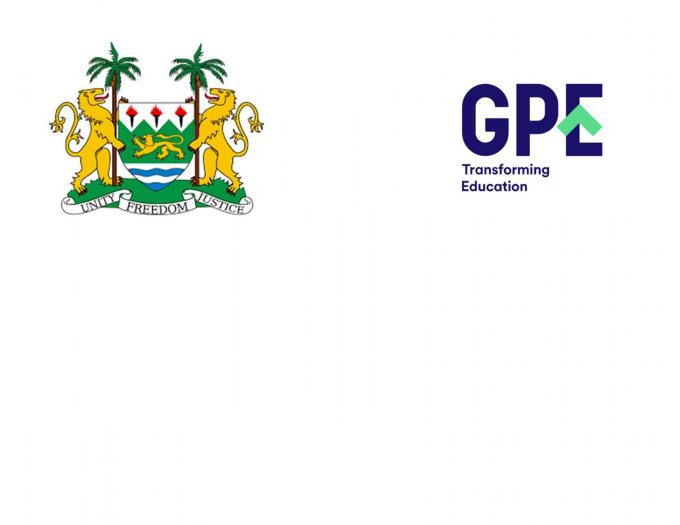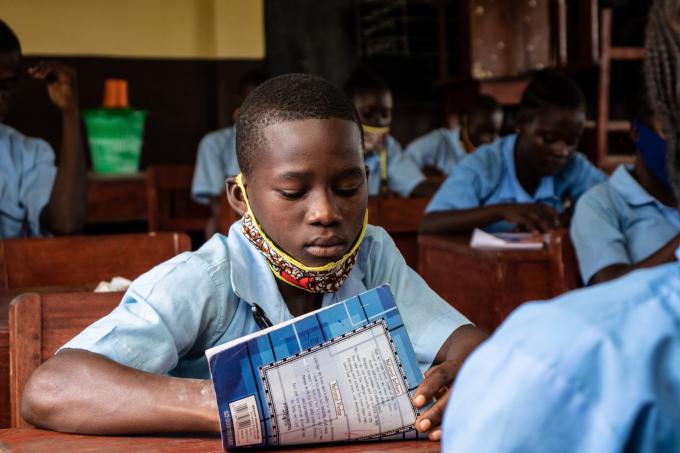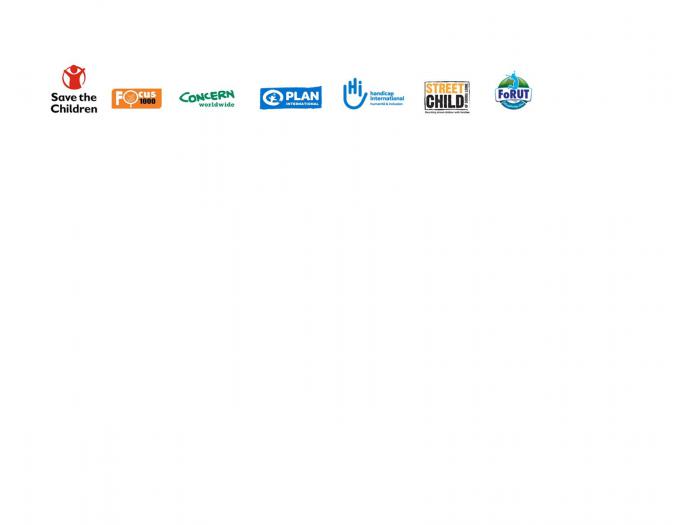Strengthening COVID-19 Education Response through Global Partnership for Education

Freetown, 23rd March 2021
The Ministry of Basic and Secondary School Education (MBSSE) is pleased to announce that it has received support from the Global Partnership for Education (GPE) to strengthen its COVID-19 Education Response Programming in Sierra Leone. The World Bank is the Grant Agent and as such this arrangement comes as additional financing in the amount of US$6.85 million funded by the GPE for the Free Education Project which MBSSE has been implementing. Since reopening of schools for all learners in October 2020, following a six-month closure due to the COVID-19 pandemic, MBSSE has been working to ensure that all boys and girls return to a safe and inclusive school environment as well as receive quality learning.

Pupils of Mischek Minah Secondary School in Pujehun district, February 2021: Photo by Infinity for Save the Children
To support implementation of this programme, MBSSE has established an innovative partnership with a Consortium of seven experienced International and National NGOs that include; Save the Children, Concern Worldwide, Plan International, Handicap International, Focus 1000, Foundation for Rural and Urban Transformation (FoRUT) and Street Child Sierra Leone, to implement selected components of the COVID-19 Education Response across the country.
The NGO Consortium brings a wealth of global and local expertise in inclusive education, gender equality, safe schools, quality distance learning and capacity building to help MBSSE reach the most vulnerable and marginalized communities in all 16 districts.
Under the direction of the MBSSE and other government entities, the NGO Consortium will support the following strategic activities;
Pillar 1: Support increased access to COVID-19 and education response messaging with:
- The dissemination of social and behavior change communication messaging in age-appropriate, gender-sensitive accessible formats for people with different types of impairment.
- Support community mobilisers with the promotion of the emergency education response (distance learning and school reopening) messaging.
- Work with community radio networks on airing radio/drama programs on the protection of children, especially girls and children with disabilities, COVID-19 prevention messages, and the education sector’s response.
Pillar 2: Support Distance Learning under the COVID-19 Education Emergency Response with
- The establishment and support of community learning circles, adapted to the COVID-19 context.
- The training of teachers (gender and disability inclusive) to support community learning circles and inclusiveness
- The provision of solar radios or relevant devices for use by community learning circles;vision of inclusive education materials;
- The implementation of child-friendly feedback mechanisms to monitor the content, quality, and outcomes of the radio teaching programs.
Pillar 3: Support Children’s return to safe, gender-sensitive, and inclusive learning in:
- Rolling out the school safety protocol to schools;
- Rolling out implementation of community outreach to encourage marginalized children to return to school, with a specific focus on messaging for girls and children with disabilities, through multiple channels;
- Building capacity of stakeholders on the provision of psychosocial support to children and teachers in collaboration with the Recipient and schools,
- Supporting schools to track student attendance after school reopening;
- Provision of back-to-school incentives including through provision of learning materials or assistive devices to identified vulnerable children.
While this programme is focused on addressing the effects of the COVID-19, the MBSSE is mindful that there could be other emergencies in the future that may lead to school closures and will therefore work with the Consortium to enhance school safety measures and disaster learning preparedness by piloting effective approaches that can be quickly implemented in emergencies. The MBSSE wishes to inform the public that it will continue to work to identify more resources and approaches to address the effects of the previous school closure, deliver quality education and reduce future learning disruptions.

 Sierra Leone
Sierra Leone